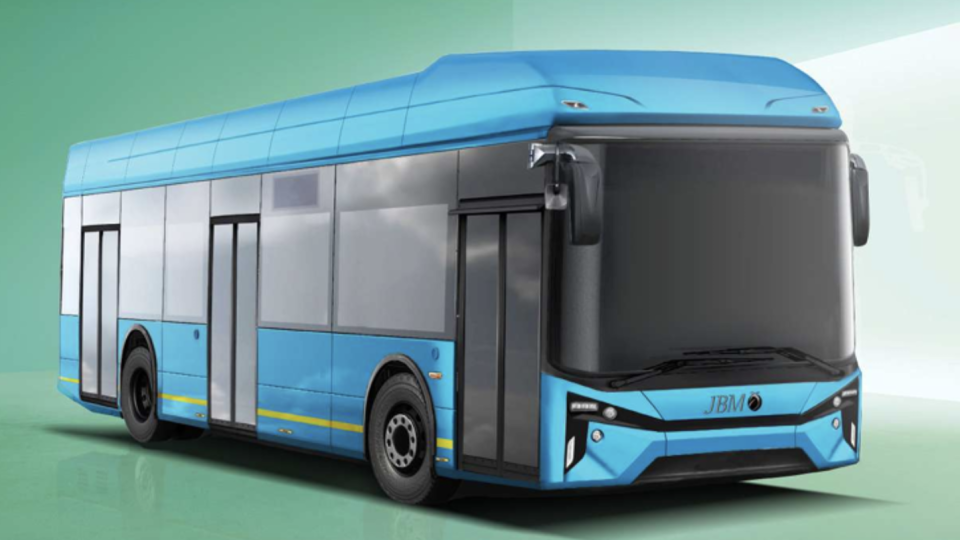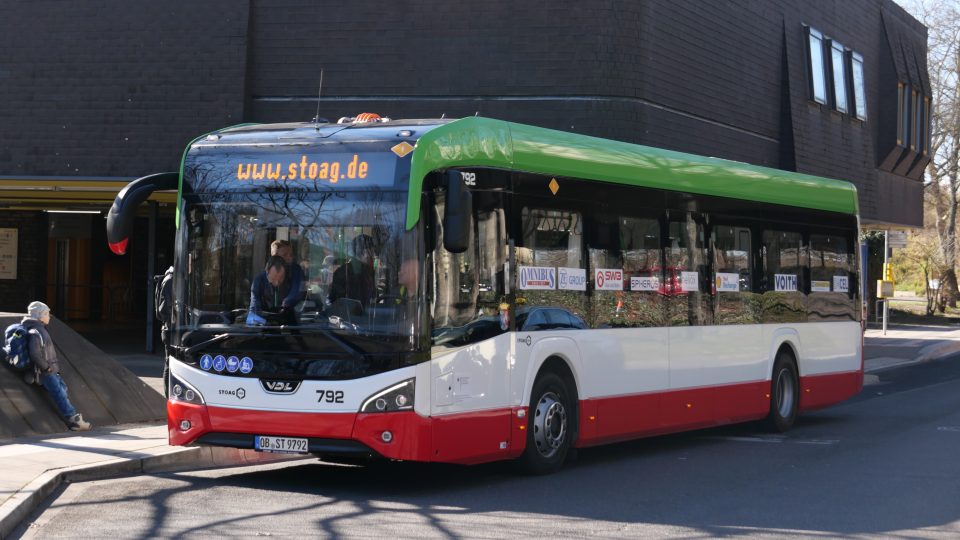BYD BD11 launched: a new double decker EV bus for UK market
BYD has raised the curtain on a new EV double decker bus model customized for the UK market. The model, named BYD BD11, features Blade Battery modules integrated in the chassis (as the B12 presented at Busworld 2023). The bus, specially tailored for London, is set to enter service later this year. And plans are […]
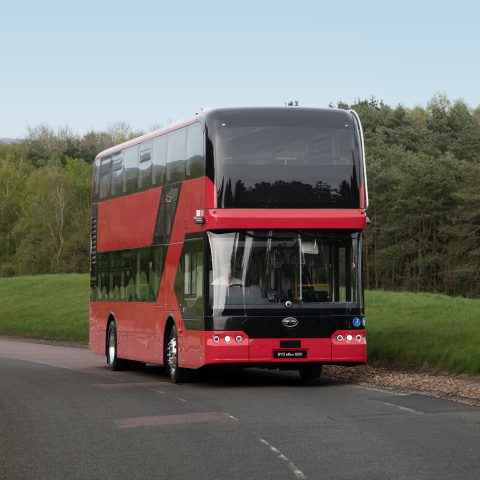
BYD has raised the curtain on a new EV double decker bus model customized for the UK market. The model, named BYD BD11, features Blade Battery modules integrated in the chassis (as the B12 presented at Busworld 2023). The bus, specially tailored for London, is set to enter service later this year. And plans are in place “for a provincial model to follow soon after”, BYD states.
The new bus is 10.9 meters long and can accommodate up to 90 passengers. Until now, BYD has been providing EV buses, as well as double-decker models, within a joint venture with Alexander Dennis. Now ADL has developed a in-house electric bus range (although in late 2023 the company stressed that “in addition to its next-generation buses, Alexander Dennis will continue to sell and support electric buses built in partnership with BYD“).
The BYD BD11 is the first in-house developed e-bus by BYD offered to the UK market.
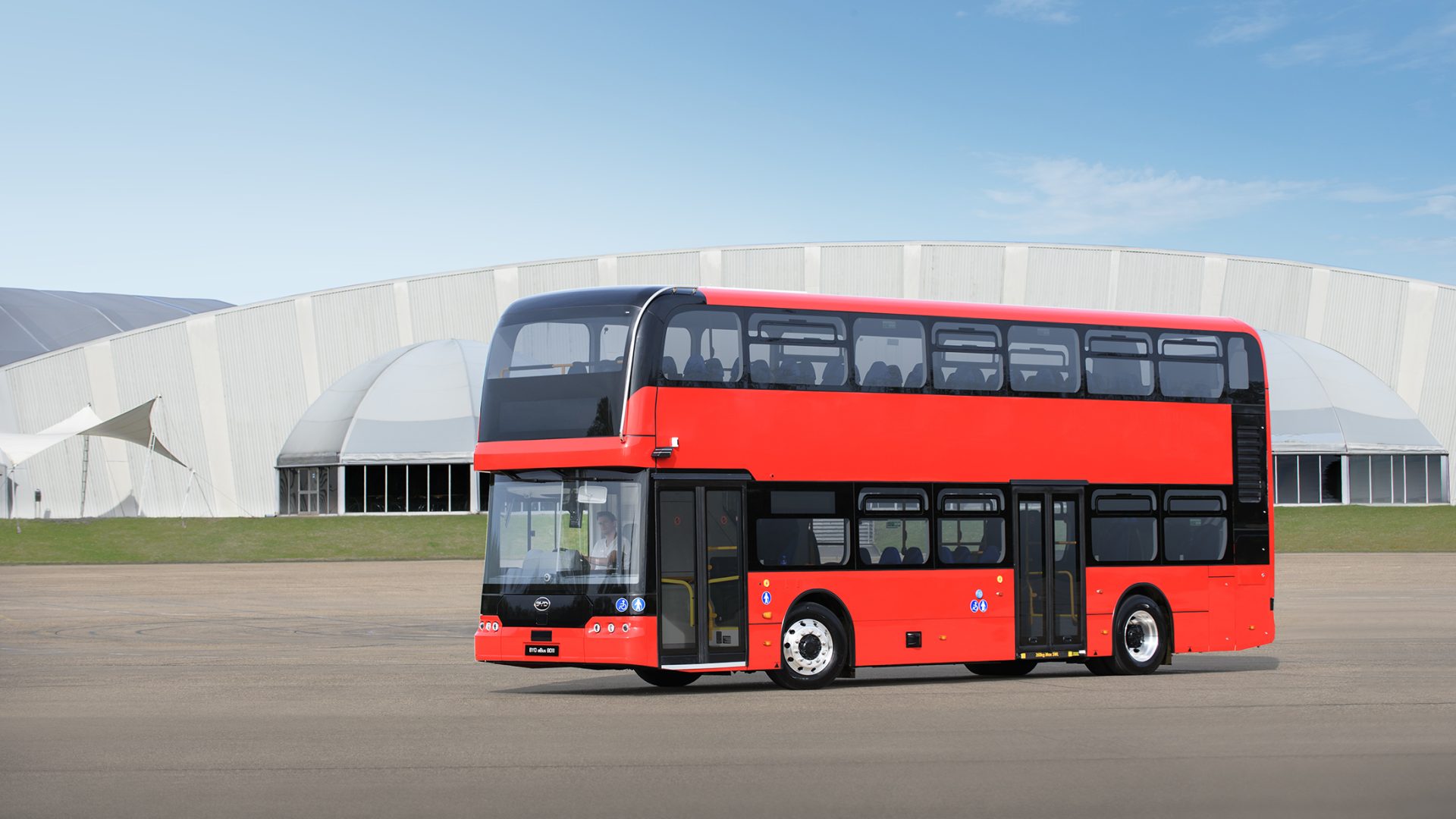
The unveiling took place at the London Bus Museum, that also houses the first electric bus with a BYD K9E chassis dedicated to the London public transport network. In the UK over 1,800 BYD e-buses are currently in operation, with a total operating mileage of more than 80 million miles.
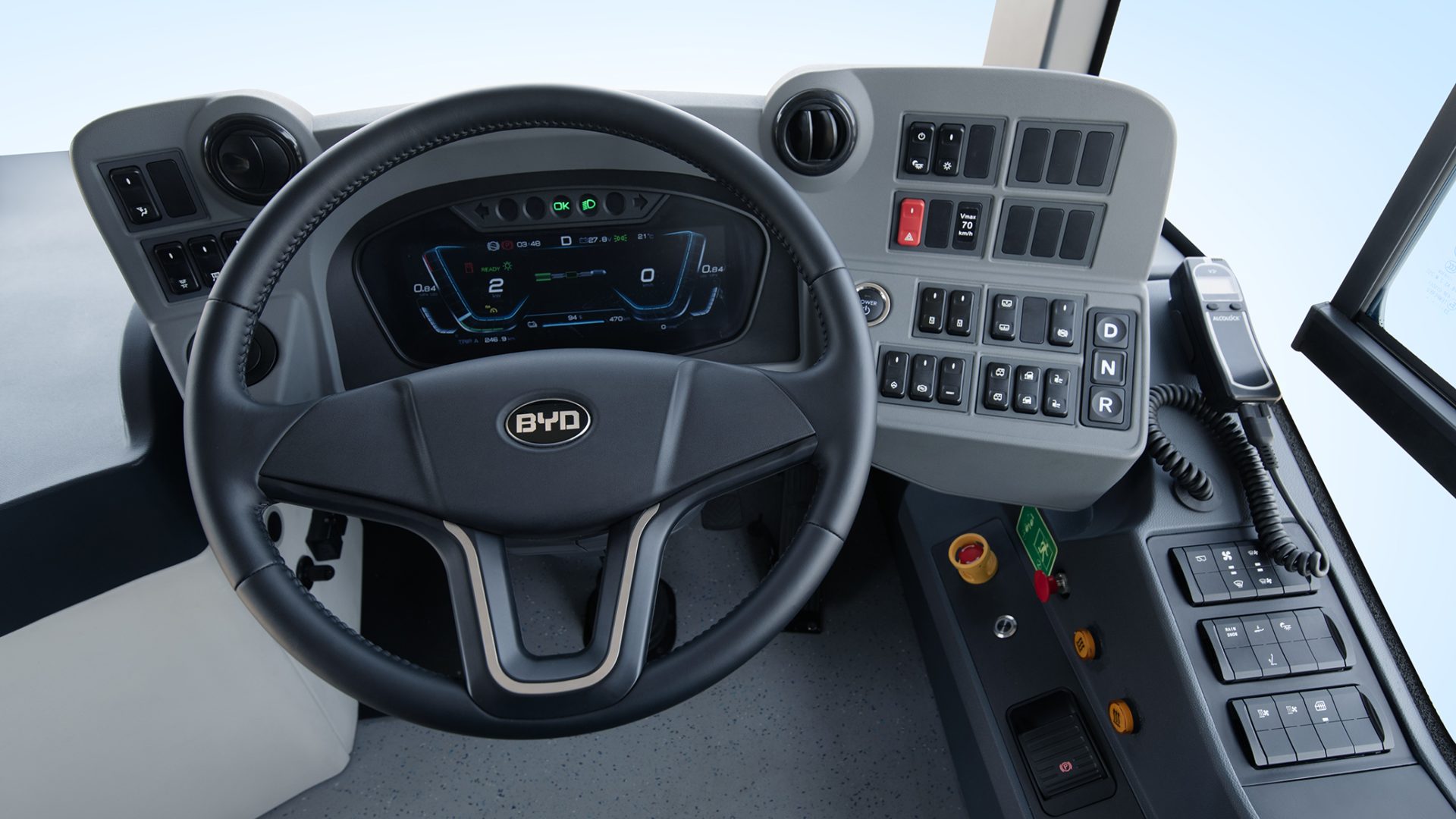
BYD BD11 features Blade Battery modules
The BYD BD11 becomes the latest vehicle to feature BYD’s renowned Blade Battery with a capacity of up to 532 kWh. It offers flexible and rapid charging options, supporting dual-gun charging and pantograph fast charging up to 500kW, which means that the BYD BD11 can be recharged in the shortest possible time, from 0 to 100 per cent in just two hours, the group states.
The Blade Battery is integrated into the chassis to save weight, increase driving range, and afford high levels of stability and maneuverability, while also increasing interior space for passengers.



The lightweight battery pack “has been designed to improve space utilisation by 50% more than a traditional battery pack, while maintaining high levels of energy density. Using each cell as a structural beam to help withstand force, the battery also achieves high levels of strength and torsional stiffness and has a low centre of gravity to increase stability and manoeuvrability”, BYD says.
BYD BD11, focus on the drivetrain
The BYD BD11 is driven by two 150kW electric motors. Incorporating multiple functions into a single assembly, the motors use an innovative 6-in-1 controller that simplifies the vehicle’s electronics for improved reliability. The electric motor controls, steering control unit, air compressor controller, DC-DC converter and power distributor unit are combined into a single package.
The 6-in-1 motor uses cutting edge Silicon Carbide (SiC) technology that yields and impressive 99.5% efficiency with a 15% weight reduction compared to traditional controllers according to BYD.
This set-up, BYD adds, “maximises energy efficiency and eliminates the need for a traditional drivetrain with separate axles and transmission. Combining a flat wire and an oil-free solution for a 15% weight reduction over conventional motors, the motor design allows for more efficient use of space, as well as improved cooling to enhance performance and power output. It offers up to 600 Nm torque for responsive acceleration, which is especially beneficial on steep inclines”.
ADAS suite for BYD BD11 double decker e-bus for UK
In addition, the BYD BD11 is equipped with an integrated thermal management system to optimise energy utilisation, plus active suspension control and a comprehensive suite of enhanced safety features, including the Advanced Driver Assistance System (ADAS).



The e-bus with London specification is indeed equipped with a range of advanced driving assistance systems (ADAS), including Advanced Emergency Braking System (AEBS), Blind Spot Monitoring (BSM), Forward Collision Warning (FCW) and Intelligent Speed Assistance (ISA).
It also meets the industry standard (R155/R156) for cybersecurity and software updates to ensure optimum system security throughout its lifecycle; regular updates will be made to maintain the security and integrity of software systems and protect the fleet against evolving threats.



An over-the-air (OTA) Fleetlink upgrade feature is being developed, which will allow the vehicle to be updated remotely to eliminate the need for physical visits to service centres. Fleet operators will be able to remotely access and upgrade the bus systems, ensuring that the BYD BD11 remains up to date with the latest software enhancements and optimisations.
“BYD is committed to technological innovation and spearheading the global transition towards eco-conscious public transportation,” comments Frank Thorpe, Managing Director, BYD UK Commercial Vehicles. “The BYD BD11 will play a pivotal role in contributing to the reduction of air pollution in London and, soon after, the UK’s wider carbon neutrality goals. We are proud to launch our own all-new electric double decker bus with highly innovative, world-leading technology for safe and reliable electric mobility, providing operators with modern eco-friendly eBus options that meet their specifications, thus providing more people the choice to use clean, non-polluting bus services in the future.”



